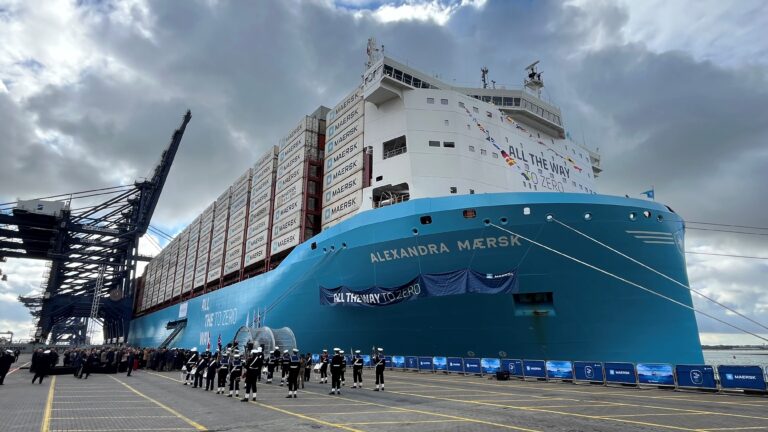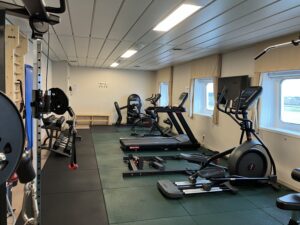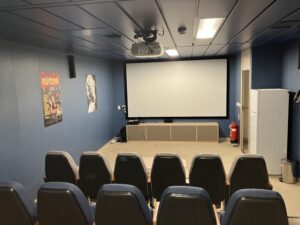At an event held at the Port of Felixstowe, shipping giant Maersk unveiled the name of its latest container vessel – Alexandra Maersk – which is the sixth ship in its owned fleet capable of sailing on green methanol in its main and auxiliary engines.
The ship, which has a total capacity of 16,592 TEU, is the fifth in a series of 18 ‘large dual-fuel methanol vessels scheduled for delivery in 2024 and 2025’.
It arrived at Felixstowe from Korea, powered by green methanol for the duration of the journey.
Maersk CEO Vincent Clerc reflected on the first Maersk vessel to call at Felixstowe in 1988, noting that what was then one of the biggest vessels in the world could only carry a quarter of the cargo that today’s Alexandra Maersk is capable of carrying. “This leap in capacity, in technology, and in efficiency highlights just how far we’ve come over [the past] three decades”, Clerc remarked.
He claimed that by replacing traditional marine fuels with green methanol, Maersk can cut CO2 emissions by 280 tonnes each day.
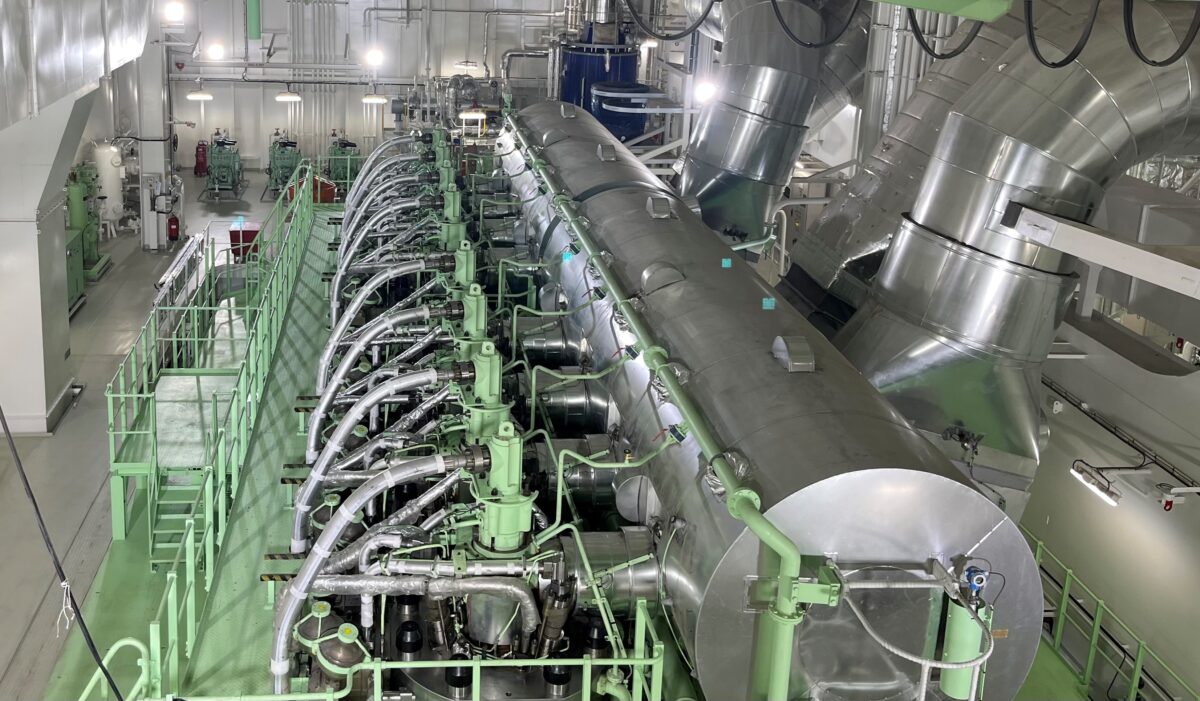
“The consequences of climate change are not distant warnings”, Clerc said. “They are present realities that demand urgent attention and close partnership between companies, governments and regulators.”
He acknowledged the responsibility the shipping industry has in supporting wider climate change goals, explaining that the industry accounts for 3% of greenhouse gas (GHG) emissions.
Paul Marchant, CEO of Maersk customer Primark, also spoke at the name-giving ceremony, describing Maersk as a “key partner” in the retailer’s global supply chain.
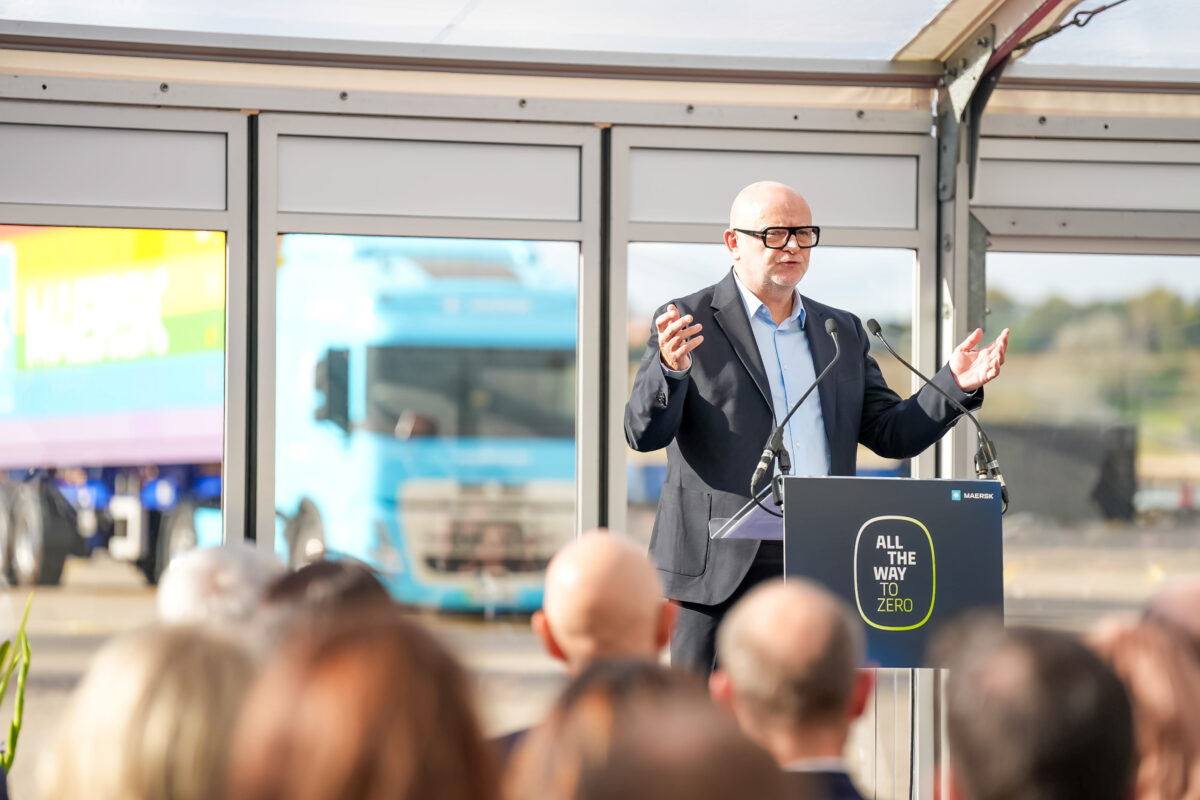
Marchant went on to say: “I think it’s fair to say that over the last six years, we have seen some of the most volatile and challenging times in supply chain history. This has made it an incredibly difficult period for businesses to navigate their way through, and one of the reasons I believe we as a business have been able to do this is down to the expertise and strength of the partnership we have with Maersk.”
Each year, Maersk moves 100,000 containers of Primark products, from 25 sourcing countries to five destination ports across the world. Of the containers on board Alexandra Maersk at the time of the name-giving ceremony, 153 contained Primark goods, coming from China, Bangladesh, India, Pakistan and Sri Lanka.
Marchant alluded to Primark’s joint ambition with Maersk to “decarbonise the maritime industry”. He described the adoption of green methanol in the shipping sector as “instrumental in helping to drive down carbon emissions”.
Both Maersk and Primark have set sustainability targets, with the Maersk aiming for net zero across all of its businesses by 2040 and Primark hoping to halve the carbon emissions in its value chain by 2030.
In recognition of the partnership between the two companies, Elaine Condon, director of people and culture at Primark, was announced as the ‘godmother’ of this new vessel.
Also in attendance at the ceremony was Mike Kane, parliamentary under-secretary of state at the Department for Transport. In a speech, he said: “Delivering greener transport is one of my department’s top priorities and it will play an integral part in our journey to net zero. For shipping, that means reducing the impact of harmful greenhouse gases.
“We are looking at ways to give the sector the clarity it needs and the certainty it deserves, including regulations to support the transition to zero- and near-zero-emission vessels. The ability to use alternative fuels will vary across the industry and the government understands that a ‘one size fits all’ approach just won’t be appropriate, but we do expect electricity to be widely used.
“For that to be successful, we know electricity capacity at ports must be boosted and too many face long connection times with cause for disruption. The secretary of state has taken this issue to the Clean Energy Mission Board, a cross-government group looking closely at grid reform, and we’ll keep engaging with the sector as we explore solutions.”
One of the barriers to the adoption of alternative fuels like green methanol for shipping, and sustainable aviation fuel (SAF) for the aviation sector, is the difference in price between these fuels and traditional fossil fuels. Kane said that the government is addressing this issue of the pricing mechanism as part of its work with the International Maritime Organisation (IMO).
Another concern is scarcity of supply. On this issue, Kane told Logistics Manager: “Just a few weeks ago, I came to the despatch box to say that 2% of all aviation fuel starting from January [2025] has to be made through sustainable methods […] To have methanol, to have hydrogen, to have ammonia, you need to have the infrastructure in our coastal communities. We need electricity supply. We need our offshore renewables coming into these ports.
“Ports provide a huge opportunity because they have space and these fuels need that space. That’s why I’m reasonably confident that once the market begins to decide on what the fuels of the future are, we have the resources, the space and the capacity within our grid and National Planning Policy Framework – which we are changing to help ports – to be a world leader in this space.”
READ MORE: National Planning Policy Framework consultation comes to an end
Logistics Manager was given the opportunity to explore the 5.35m-tall, 350m-long Alexandra Maersk vessel and see some of the facilities used by the crew on-board. These included a swimming pool, a gym, a cinema room and a games room.


